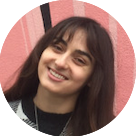Dylan Nugent: Engineering Manager to Infrastructure Engineer
This is a continuation of our series exploring the paths that Recursers take to RC, what they do during their batch, and what happens after.
Dylan came to RC in the spring and summer of 2020 and now works as a Senior Software Engineer at Google.

Here is Dylan’s story:
Before RC
I was interested in computers from a young age; they fascinated me. I messed around with making games when I was pretty young, and I was fortunate enough to go to a high school with a CS program. In college, I did a bit of volunteer system administration stuff, as well as studied computer science and had internships. I took the traditional path into software engineering I suppose!
Before Recurse, I was a manager of the data engineering team at a mid-sized start-up. I’d been in management for a little over a year at that point and I’d hit a point in my career where I was feeling like I was no longer doing things that deeply interested me. I didn’t remember why I wanted to do this in the first place: I was tired of it, it was super stressful, and I was generally burnt out. I’d heard about the Recurse Center two or three years earlier from colleagues at a prior company, and I wanted to refresh my programming skills and go back towards being an individual contributor, so I applied in September of 2019.
During RC
When I came to RC, I planned to work on a DNS server that I was writing from scratch, but something that I found really early on was that it was really fun and engaging to sit down with someone else and ask them what they were working on. Early in the batch, we started a networking club where we would meet every Friday and chat over different networking topics. I paired with a lot of people chasing down bugs, and I paired on one bug that ended up being a bug in Node itself.
In the first week of RC, I had conversations with an alum after presentations and realized that I was talking with someone who really knew what he was talking about. He had built the DNS infrastructure for Cloudflare, and made really interesting suggestions for things to experiment with and check out.
That conversation stuck out to me because I could have taken three months and worked in a vacuum in my bedroom, but I couldn’t have had spontaneous conversations with people like this, and I wouldn’t have known how to reach out and get that kind of knowledge.
I’ve been in other environments that have been learning-focused, like college, but it didn’t feel to me like this was a student/professor conversation or anything like that - it just felt like everyone was chatting about things they were interested in!
During those first few months of COVID I was in my apartment, and it was really good to still have an online community to chat with and to get support from. Everyone was obviously experiencing this dramatic shift in our lives at the exact same moment. The transition itself was rough, but there were the social activities and the support groups and things like that which actually were really helpful. On the programming front, I learned a lot about how to program remotely, collaboratively and it was a good period of time to learn what it meant to go fully remote.
After RC
I planned to go back into the software industry following RC, and using RC’s career services made sense.
RC’s career services are great - the process is very much unlike how applying to a job normally is. I had conversations about what I was interested in, and they put in a lot of effort into finding jobs that matched what I’d discussed.
RC’s career services doesn’t feel like a thing where you’re being pushed to take an offer. Everyone is supportive and helpful in trying to find the job that’s right for you no matter where that is.
Now I’m a software engineer on Google’s Speech Platforms Privacy team - we work on the data infrastructure that powers speech research for devices like Google Home, and also automatic captioning on Google Meet or YouTube. I still like learning by doing and sharing what I’m working on. That mechanism of explaining concepts is always a good way to learn, because in the process of explaining something, you have to understand it a little bit better. I haven’t done as much of that recently, but while at RC I did my first tech talk at a conference. A lot of what I do currently is reading things that spark curiosity, and I learn through work too, but most of my learning comes from outside of work.
I’m pretty active on Zulip and I keep in touch with a lot of the people whom I befriended during my batch, and I go to the NY-area social events.
Something about the size and selection of the RC Community, I feel like it never really feels like I don’t know who someone is at all. Conversations on Zulip have a tendency to be really good, and it’s really refreshing to have nice conversations around software stuff on the Internet with relative strangers.
There are a lot of websites that are notably not like that, but because the Recurse Community is a community of people who all value the same things, especially curiosity and kindness, and doing our best to be excellent to each other (to quote Bill and Ted), it works really well.
